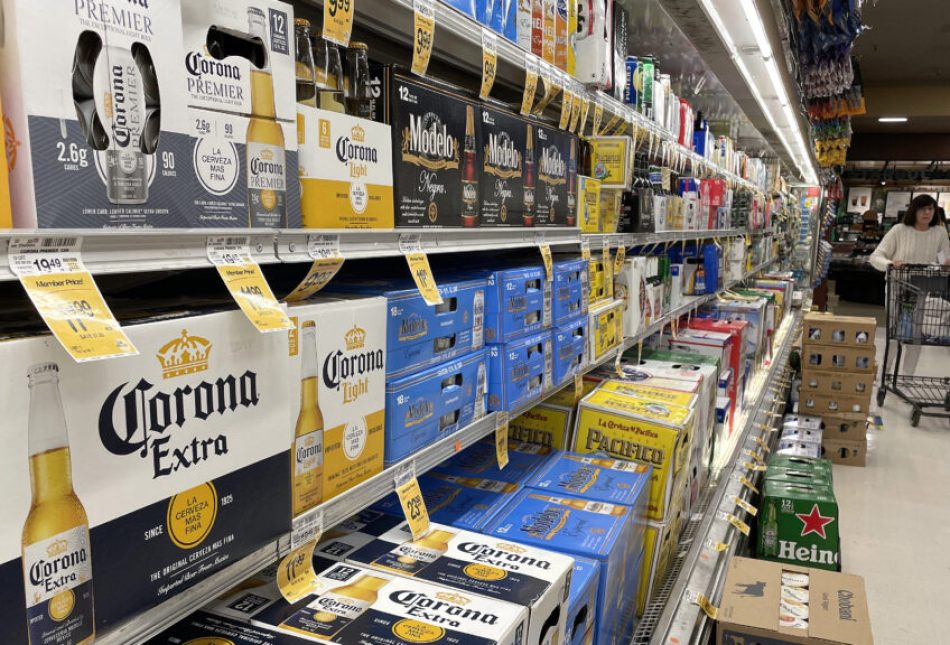RGF opinion piece: Higher taxes won’t solve alcohol’s harms

The following appeared in Las Cruces Sun News on January 19, 2025.

According to the latest budget analyses from the Legislature, New Mexico policymakers have nearly $900 million in “new” money available as the session begins in Santa Fe. This comes on top of massive surpluses in recent years which the Legislature has largely spent or used to bolster the State’s already prodigious sovereign wealth funds which now total $58 billion.
In many states across the nation policymakers of both parties would be fighting to see who can come up with the best tax cut or rebate plan. Sadly, this November, New Mexico’s voters again chose to elect the most left-wing people on the ballot.
This means that instead of tax cuts, the New Mexico Legislature is (again) seriously considering raising taxes on hard-working New Mexicans.
The main tax hike on the Legislature’s agenda is a tax hike on alcohol. This has been contemplated in recent years only for varying groups of “progressives” in the Legislature have failed to agree. Gov. Lujan Grisham even vetoed a small alcohol tax hike that passed the Legislature in 2023.
Advocates of higher alcohol taxes have argued that New Mexico’s alcohol taxes are “low.” And that raising alcohol taxes will reduce problems associated with alcohol. But, currently half of the State’s alcohol excise tax revenues are allocated to the state’s general fund. If the problem is a lack of resource for treatment, the Legislature should start by increasing that allocating, not necessarily the tax.
Also, New Mexico’s taxes on alcohol are hardly “low.” According to the Tax Foundation, New Mexico’s $6.06/gallon tax on distilled spirits ranks 24th in the nation. Our 41 cent/gallon tax on beer is 14th-highest in the nation. And, our wine tax of $1.51/gallon places New Mexico at 5th-highest in the nation.
New Mexicans aren’t even particularly big consumers of alcohol relative to other states. According to data from World Population Review New Mexico’s alcohol consumption per-capita is ranked 31st in the nation. At 2.3 gallons annually New Mexicans consume less than half the alcohol consumed in New Hampshire where the average person consumes 4.8 gallons.
At the risk of being unfair we will simply note that New Hampshire performs far better on nearly every available social metric than does New Mexico (violence, poverty, child outcomes).
As is so often the case in public policy politicians are considering a tax hike on the broad population of New Mexicans to address problems created by a relatively tiny number of people. Putting the entire current alcohol tax into treatment is a reasonable way to address New Mexico’s problem drinkers. Raising taxes on everyone simply is not.
Alcohol taxes are seen as regressive because they tend to be charged at a single rate (thus impacting those with lower incomes most). On the other hand, high earners both tend to drink more and tend to binge drink more. So, while they may bear more of the tax burden, it is hard to see heavy drinkers with high incomes having their drinking decisions impacted by a higher tax on alcohol.
Taxes are a blunt tool in addressing consumption of a legal product. The policy goal of advocates seems to be some kind of neo-prohibition on the part of New Mexico’s “progressive” politicians. Considering the recent push on the part of many of these same politicians to legalize recreational marijuana one cannot help but be mystified at the inconsistent approaches applied.
Paul Gessing is president of New Mexico’s Rio Grande Foundation, an independent, nonpartisan, tax-exempt research and educational organization dedicated to promoting prosperity for New Mexico based on principles of limited government, economic freedom and individual responsibility.

